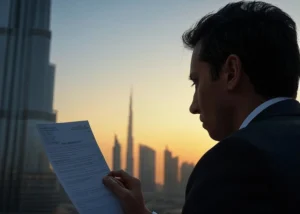Extradition has long been a cornerstone of international cooperation in criminal justice, allowing countries to ensure that fugitives face justice for their crimes. As a global organization dedicated to facilitating cross-border police cooperation, Interpol plays a pivotal role in extradition cases. The United Arab Emirates (UAE), with its strategic location and significant international population, has frequently engaged with Interpol to handle extradition matters. This article explores the role of Interpol in extradition cases involving the UAE and highlights its impact on the nation’s legal landscape.
Understanding Interpol’s Mandate
Interpol, or the International Criminal Police Organization, is an intergovernmental organization with 195 member countries, including the UAE. Its primary objective is to foster collaboration among police forces worldwide to combat transnational crimes. Interpol does not possess law enforcement authority or the ability to arrest individuals directly. Instead, it serves as a communication hub, issuing notices and facilitating the exchange of information between member states.
Red Notices: A Key Tool in Extradition
One of Interpol’s most critical tools in extradition cases is the Red Notice. A Red Notice is a request issued to locate and provisionally arrest a fugitive, pending extradition or similar legal action. It is not an international arrest warrant but serves as an alert to law enforcement agencies in member countries.
In the UAE, Red Notices have been instrumental in apprehending individuals accused of financial crimes, corruption, and other serious offenses. The nation’s authorities collaborate closely with Interpol to ensure that fugitives are tracked and detained in accordance with international legal standards.
The UAE’s Approach to Extradition
The UAE’s legal framework for extradition is governed by international treaties, bilateral agreements, and domestic laws. The country has signed extradition treaties with numerous nations and abides by the principles of reciprocity in cases involving states without formal agreements. Interpol’s involvement is often crucial in these scenarios, particularly when a Red Notice serves as the basis for identifying and detaining a suspect.
High-Profile Extradition Cases
Several high-profile extradition cases involving the UAE and Interpol highlight the organization’s importance:
- Economic Offenders: The UAE, particularly Dubai, is a global financial hub, making it a potential destination for individuals seeking to evade prosecution for white-collar crimes. Interpol’s cooperation has led to the extradition of individuals accused of embezzlement, fraud, and money laundering.
- Terrorism and Organized Crime: In line with its commitment to combating terrorism, the UAE has worked with Interpol to track and extradite individuals involved in transnational organized crime networks and terrorist activities.
- Human Trafficking: Collaborative efforts between Interpol and the UAE have also targeted human trafficking syndicates, ensuring that perpetrators face justice.
Challenges and Controversies
While Interpol’s role is crucial, it is not without challenges. Critics have raised concerns about the misuse of Red Notices, with some alleging that they are used to target political dissidents or individuals involved in civil disputes. The UAE, like other nations, must ensure that its extradition requests through Interpol adhere to international human rights standards and avoid allegations of abuse.
Additionally, differences in legal systems and evidentiary standards between the UAE and other countries can complicate extradition proceedings. Interpol’s involvement often requires careful navigation of these disparities to ensure compliance with both domestic and international laws.
Enhancing International Cooperation
Interpol’s role in extradition cases involving the UAE underscores the importance of global partnerships in addressing transnational crime. By leveraging Interpol’s resources, the UAE continues to strengthen its legal system and uphold its commitments to international justice.
As the world becomes increasingly interconnected, the role of organizations like Interpol will only grow. For the UAE, maintaining transparency and adherence to international norms in its extradition practices will be essential to fostering trust and collaboration on the global stage.






